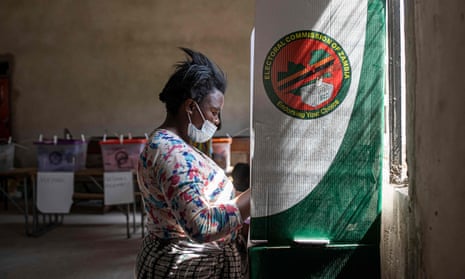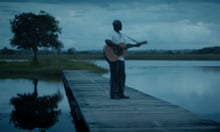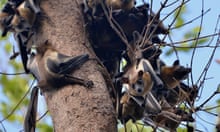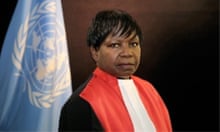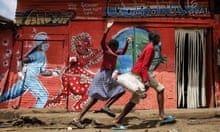As Zambia goes to the polls today, fears are growing that political meddling in the process could push its long-treasured democracy towards a “tipping point”.
Zambia has long been considered a model of democracy for its neighbours. But today’s vote has been accompanied by a military deployment, while the run-up to the election has been marred by political violence and restrictions on opposition campaigning, analysts and human rights monitors have said.
Hakainde Hichilema, the leader of the opposition United Party for National Development (UPND), said on Wednesday that his party had been barred from campaigning in the key Copperbelt province for the second time in a week.
“In the run-up to this election we’ve witnessed things that are not typical to Zambian elections,” said Linda Kasonde, who heads human rights group Chapter One Foundation.

She said that in the past five years of rule under President Edward Lungu, there had been increasing violence by supporters of his Patriotic Front, as well as the UPND.
“It’s fair to say that most of those instances have been instigated by the ruling party. They seem to be able to get away with all manner of things, including killing people,” she said. “Zambia has a history post-1991 of changing governments peacefully through the ballot box. There’s a fear that this election is a tipping point for this country.”
The vote comes at a time when Zambians are angry at the state of the economy, with high unemployment and the country defaulting on its debt last year, while Lungu’s rule over the past five years has been seen as increasingly authoritarian. He deployed the military to parts of the capital, Lusaka, earlier this month after two of his party activists were killed in clashes with the opposition. Critics are concerned the military presence will intimidate voters, but the government said the steps were taken to avoid violence.
In June, Amnesty International warned a “brutal crackdown” on opposing voices under Lungu was setting the tone for the election. The organisation’s Zambia researcher, Vongai Chikwanda, said that trend had continued ahead of Thursday’s vote, with concerns over lack of freedom of expression, limits on gatherings and political violence.
“We are concerned about the pre-election violence but we are also concerned about the deployment of the army and the message that sends. It has already instilled fear. The army is not trained to police gatherings, it is trained to use violence,” said Chikwanda.
She said there was a growing culture of “cadre-ism” involving low-level party activists intimidating rivals, and threats and attacks on journalists, including instructions for radio stations to play the ruling party’s political broadcasts.
A “toxic environment” was being created, she added, with polarising politics and an increasing level of hate speech. This could become worse, she said, if there are irregularities in the vote and, as the government has suggested, the internet is banned in Zambia during the voting.
Chikwanda said coronavirus rules have also been applied selectively, with ruling party rallies often allowed to go ahead while oppositions ones were banned.
An American Bar Association report on conditions ahead of the election said the opposition had been prevented from gathering during the campaign, noting reports of teargas being fired at Hichilema’s convoy, while both he and other candidates were blocked from entering some towns.
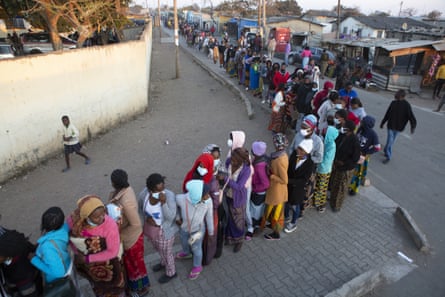
“[Our] campaigns have been riddled with restrictions,” Hichilema told reporters on Wednesday. “We went through detentions at airports, and before entering certain towns, as though we needed passports within our own country.”
He said the country’s institutions need to make Thursday’s vote fair by ensuring all can vote under the same conditions to avoid political violence.
Kasonde believes any interference in the result could have a damaging effect on Zambia’s democracy. “We wait to see whether the will of the people will be respected or whether, as feared by many, the outcome of the election will be manipulated. If that succeeds, we may follow the trajectory of countries like Zimbabwe where elections are foregone conclusions, where we cannot express ourselves.”
